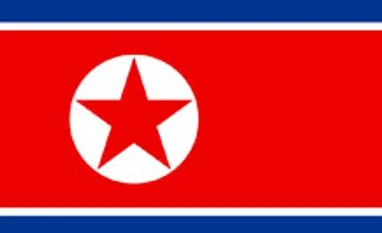The latest measures announced by Pyongyang ramped up tensions on the Korean peninsula that have surged since the North staged a third nuclear test last month.
The country had threatened yesterday a pre-emptive nuclear strike against the United States and South Korea.
Pyongyang is known for its bellicose rhetoric, but the tone has reached a frenzied pitch in recent days, fuelling concerns that it might trigger a border incident, with both North and South planning major military exercises next week.
North Korea "abrogates all agreements on non-aggression reached between the North and the South", the state-run Committee for the Peaceful Reunification of Korea (CPRK) said in a statement.
A non-aggression pact signed in 1991 endorsed the peaceful settlement of disputes and the prevention of accidental military clashes.
The CPRK said the pact would be voided as of Monday, the same day that Pyongyang has vowed to rip up the 1953 armistice agreement that ended Korean War hostilities.
"It also notifies the South side that it will immediately cut off the North-South hotline," the committee said in a statement carried by the official Korean Central News Agency.
The hotline was installed in 1971 and the North has severed it on five occasions in the past -- most recently in 2010.
Pyongyang's latest announcement came hours after the UN Security Council beefed up existing sanctions on the communist state in response to its February 12 nuclear test.
The resolution adopted by the 15-member Council added new names to the UN sanctions blacklist and tightened restrictions on North Korea's financial dealings, notably its suspect "bulk cash" transfers.
The new sanctions will "bite hard", said the US ambassador to the UN, Susan Rice. "They increase North Korea's isolation and raise the cost to North Korea's leaders of defying the international community."
China wants "full implementation" of the resolution, said its UN envoy Li Baodong, while stressing that efforts must be made to bring North Korea back to negotiations and to defuse tensions.
Prior to the Security Council meeting, the North Korean foreign ministry had threatened a "pre-emptive nuclear attack" against the United States and all other "aggressors".
The United States responded by saying it was "fully capable" of defending itself and its allies -- including South Korea -- against any missile strike.
)